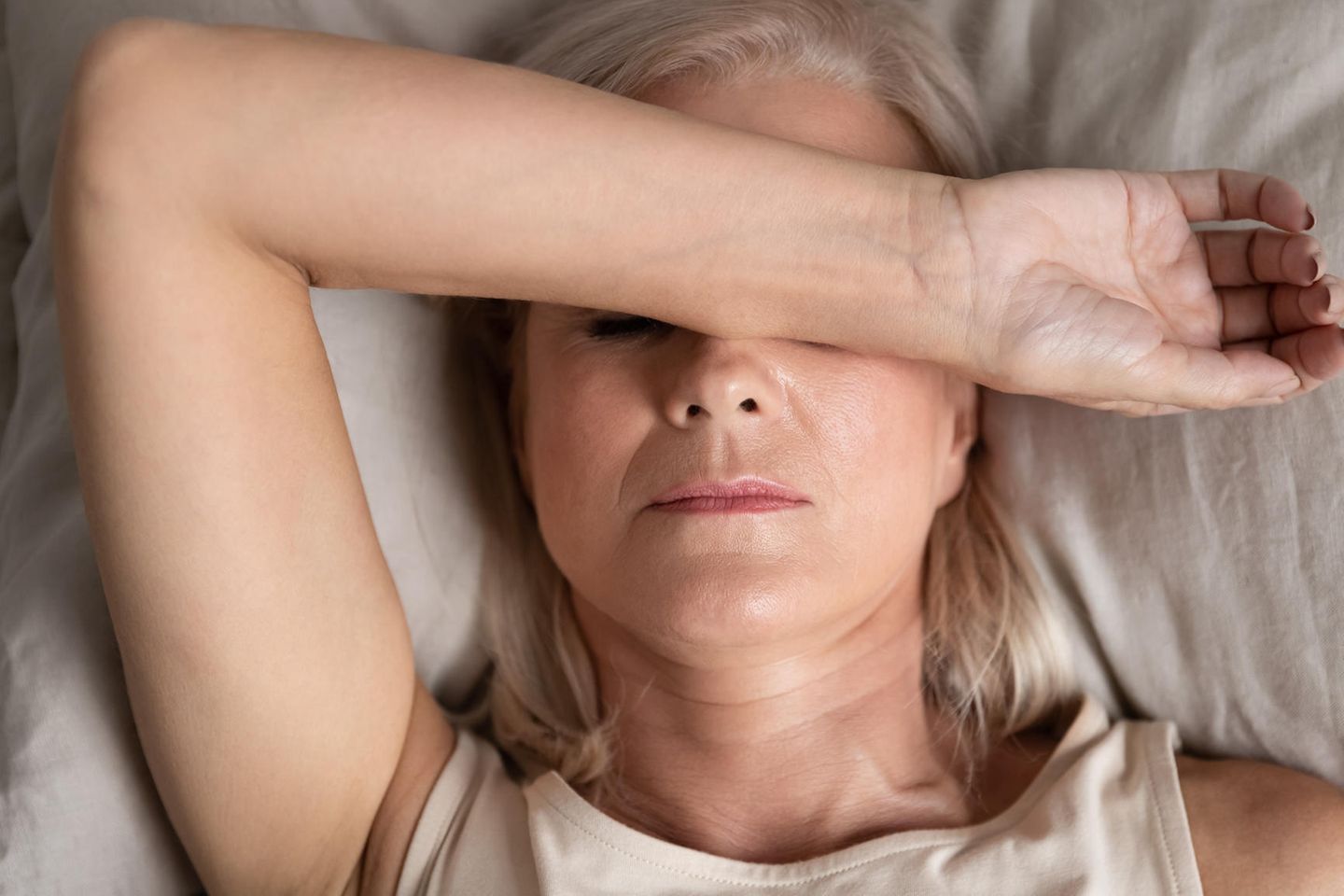
Menopausal insomnia is a problem for many women. Here you can find out why the symptoms occur and what can help against them.
Why do you have insomnia during menopause?
It is believed that around every second woman will have trouble sleeping during menopause. The cause of the symptoms is the hormonal changes in the body that take place during menopause. Among other things, this affects messenger substances that help control the sleep phases in the brain. Also, the body produces less of the hormone estrogen during menopause, which can also lead to symptoms. Affected women may, therefore, often sleep poorly, suffer from sleep disorders and/or sleep apnea, so apnea during sleep.
What are the first signs of menopause - and what do they have to do with my sleep?
There are several typical symptoms of the onset of menopause, which can also disrupt the rhythm of sleep. These include:
- Hot flashes: In addition to sleep disorders, hot flashes are one of the early symptoms of menopause. And these can make sleep problems worse because they cause heavy night sweats. Many women have to get up at night and, for example, change their sleeping clothes and/or bedding, which not only reduces the overall length of sleep but also makes it difficult to fall asleep again.
- Brooding: Many women who weren't previously brooders also start contemplating as a symptom of menopausal symptoms. After all, the body changes significantly during this time, and anyone struggling with severe symptoms such as constant mood swings and hot flashes can also find it difficult to stop thinking about them at night. As if that's not enough, the brooding then unfortunately also causes sleep disorders.
What are the consequences of poor sleep during menopause?
Adequate sleep is essential at any age. If sleep disorders occur in women during menopause, this can lead to the following symptoms :
- Constant irritation
- Extreme tiredness during the day
- Mood swings up to the depressive mood.
- Difficulty concentrating
- Decreased efficiency
If insomnia persists, it increases the risk of various diseases, such as diabetes. You can read about what it means to be diabetic here.
What helps against sleep disorders during menopause?
Several methods can be used to manage menopausal sleep disorders. These include:
1. General tips against sleep disorders during menopause
The following simple tips can help with mild insomnia:
- Do sports during the day
- In the evening, include light meals in your diet, which should be taken at least three hours before going to bed
- Avoid caffeinated drinks from the early evening
- Pay attention to good sleep hygiene: the room should be comfortably tempered, quiet, and darkened, the duvet should be neither too thick nor too thin
- Learn relaxation techniques, e.g., B. Autogenic training, progressive muscle relaxation, breathing exercises or meditation
Do you want to learn meditation? Here's how to do it!
2. Herbal remedies for mild insomnia
In consultation with the doctor, you can also try herbal preparations to alleviate the symptoms. For example:
- hop
- valerian
- lavender
- Lemon balm
The following applies: Such agents should not be used against insomnia for a long time. In the long run, it is essential to treat the cause of sleep disorders.
For other symptoms during menopause, active ingredients from the following plants can also help:
- Monk's pepper acts z. B. for menstrual cramps such as sweats and hot flashes
- Black cohosh is also effective against hot flashes and against depressive moods.
3. Hormone Replacement Therapy
Hormone replacement therapy is another way of reducing classic symptoms such as sleep disorders if these are caused by menopause. The hormone estrogen, the production of which is reduced during menopause, is supplied - for example, in tablet form or applied as a gel. A combination of estrogen and progestin therapy is often recommended for treatment. Here, too, the following applies: whether hormone replacement therapy is an option for severe symptoms should be clarified with the doctor.
